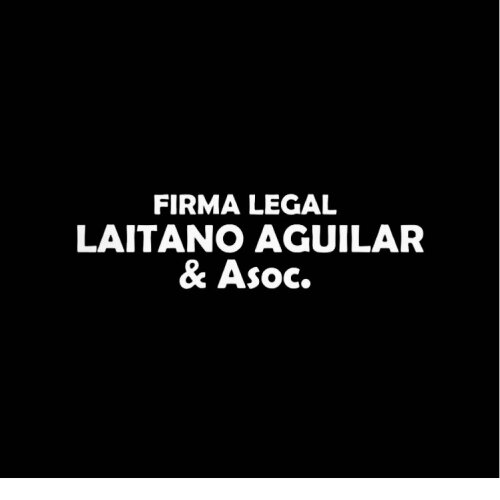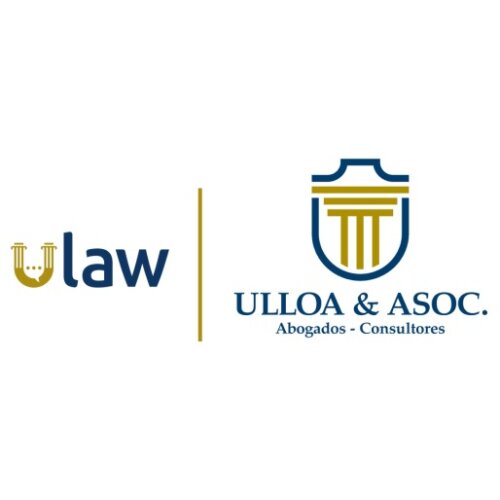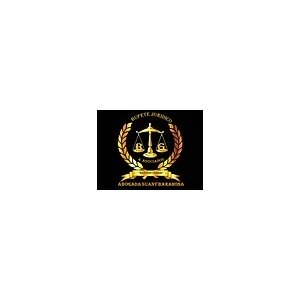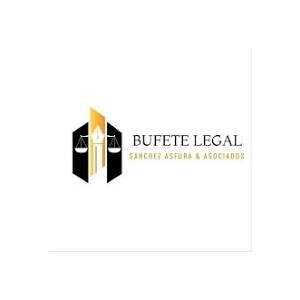Best Climate Change Law Lawyers in Honduras
Share your needs with us, get contacted by law firms.
Free. Takes 2 min.
Or refine your search by selecting a city:
List of the best lawyers in Honduras
About Climate Change Law in Honduras
Climate Change Law in Honduras is an evolving area of legal practice that focuses on regulating, mitigating, and adapting to the impacts of climate change within the country. As a member of the United Nations Framework Convention on Climate Change (UNFCCC) and the Paris Agreement, Honduras has committed to various international goals that aim to reduce greenhouse gas emissions, enhance environmental protection, and promote sustainable development. The legal framework covers sectors such as energy, agriculture, forestry, industrial development, and environmental conservation, ensuring that both governmental and private actions comply with national and international obligations related to climate change.
Why You May Need a Lawyer
Individuals, companies, and organizations in Honduras may need legal advice on Climate Change Law for several reasons. Common situations where legal help is essential include:
- Understanding regulatory requirements for new business projects, particularly in energy, agriculture, or construction.
- Challenging or responding to government regulations, permits, or compliance actions related to environmental protection.
- Advising on compliance with emissions standards and reporting obligations.
- Negotiating or drafting contracts for renewable energy projects or sustainable initiatives.
- Representing clients in disputes involving environmental damage, land use, or community rights relating to climate impacts.
- Ensuring company policies align with national and international climate commitments.
- Seeking guidance on participation in carbon trading or financing for climate projects.
Local Laws Overview
Honduras has enacted several legal instruments to address climate change and environmental protection. Some of the most relevant laws and regulations include:
- General Environmental Law (Ley General del Ambiente) - Sets out the foundation for environmental regulation, including climate change mitigation and adaptation measures.
- National Strategy for Climate Change - Establishes the strategic planning for climate adaptation, renewable energy, and carbon reduction efforts.
- Forest Law - Aims to protect and manage forest resources, which are key carbon sinks in the fight against climate change.
- Energy Law - Regulates the transition to renewable energy sources, and includes incentives and standards for sustainable development.
- International Commitments - Honduras is bound by agreements such as the UNFCCC and Paris Agreement, which require regular reporting and implementation of climate policies.
- Municipal Regulations - Local governments may enforce rules on construction, waste management, water use, and urban planning that intersect with climate policies.
These laws establish responsibilities for both public and private actors, making compliance and awareness crucial for anyone involved in sectors affected by climate regulations.
Frequently Asked Questions
What is Climate Change Law?
Climate Change Law refers to legal rules, policies, and regulations aimed at addressing the causes and effects of climate change. In Honduras, this includes national laws as well as international treaties the country has agreed to follow.
How does Honduras address climate change at the legal level?
Honduras has implemented national laws and strategies, such as the General Environmental Law and the National Strategy for Climate Change, alongside its commitments to international agreements like the Paris Agreement, to regulate emissions, protect resources, and promote sustainable practices.
What types of activities are regulated under Honduran Climate Change Law?
Regulated activities include energy production, deforestation, land use changes, waste management, industrial emissions, and the development of infrastructure projects that could impact the environment.
Who enforces climate change laws in Honduras?
Enforcement is primarily the responsibility of the Ministry of Energy, Natural Resources, Environment, and Mines (MiAmbiente), as well as local municipal authorities for region-specific regulations.
Do businesses have reporting obligations for climate impacts?
Yes, certain industries are required to report emissions, perform environmental impact assessments, and comply with standards for pollution control and resource use.
What legal consequences exist for violating climate change laws?
Consequences can include fines, suspension of operations, revocation of permits, and even criminal charges in severe cases of environmental harm.
Can individuals or communities participate in climate change legal actions?
Yes, communities and individuals have the right to participate in environmental decision-making, submit complaints, and seek judicial review of actions that may affect their environment and wellbeing.
What support or incentives are available for adopting green technologies?
The government offers incentives such as tax benefits, grants, and preferential loans for investments in renewable energy, sustainable agriculture, reforestation, and similar projects.
How are international climate commitments implemented in Honduras?
The government integrates international commitments into national law and policies, requiring regular progress reports and adaptation or mitigation plans that are aligned with global targets.
Why consult a lawyer about climate change issues?
A lawyer can help interpret complex regulations, ensure compliance, represent interests in disputes, and identify opportunities or risks relating to climate projects or regulations.
Additional Resources
For further information or assistance on Climate Change Law in Honduras, consider these resources:
- Ministry of Energy, Natural Resources, Environment, and Mines (MiAmbiente) - The primary government body for environmental regulation and climate policy.
- National Climate Change Directorate (Dirección Nacional de Cambio Climático) - Coordinates climate change strategies and programs.
- Attorney General’s Office for the Environment (Fiscalía Especial del Medio Ambiente) - Handles legal actions related to environmental protection.
- Environmental NGOs - Such as Fundación Vida and Asociación Hondureña de Energía Renovable, which offer resources and advocacy.
- Bar Association of Honduras - Can help in finding lawyers specializing in environmental and climate change law.
Next Steps
If you require legal assistance in the area of Climate Change Law in Honduras, consider taking the following steps:
- Gather all relevant documents and information related to your issue, such as permits, correspondence, or project details.
- Identify whether your concern involves compliance, a dispute, project planning, reporting, or obtaining permits.
- Contact a qualified lawyer who specializes in climate change or environmental law. Use referrals from the Bar Association or organizations mentioned in the resources.
- Prepare a clear summary of your legal needs and any questions you may have for your consultation.
- Stay informed about changes in laws and policies that may impact your obligations or opportunities under climate change regulations.
A knowledgeable legal professional can guide you through compliance, help avoid penalties, and ensure your interests are protected in this dynamic and critical field.
Lawzana helps you find the best lawyers and law firms in Honduras through a curated and pre-screened list of qualified legal professionals. Our platform offers rankings and detailed profiles of attorneys and law firms, allowing you to compare based on practice areas, including Climate Change Law, experience, and client feedback.
Each profile includes a description of the firm's areas of practice, client reviews, team members and partners, year of establishment, spoken languages, office locations, contact information, social media presence, and any published articles or resources. Most firms on our platform speak English and are experienced in both local and international legal matters.
Get a quote from top-rated law firms in Honduras — quickly, securely, and without unnecessary hassle.
Disclaimer:
The information provided on this page is for general informational purposes only and does not constitute legal advice. While we strive to ensure the accuracy and relevance of the content, legal information may change over time, and interpretations of the law can vary. You should always consult with a qualified legal professional for advice specific to your situation.
We disclaim all liability for actions taken or not taken based on the content of this page. If you believe any information is incorrect or outdated, please contact us, and we will review and update it where appropriate.
Browse climate change law law firms by city in Honduras
Refine your search by selecting a city.

















